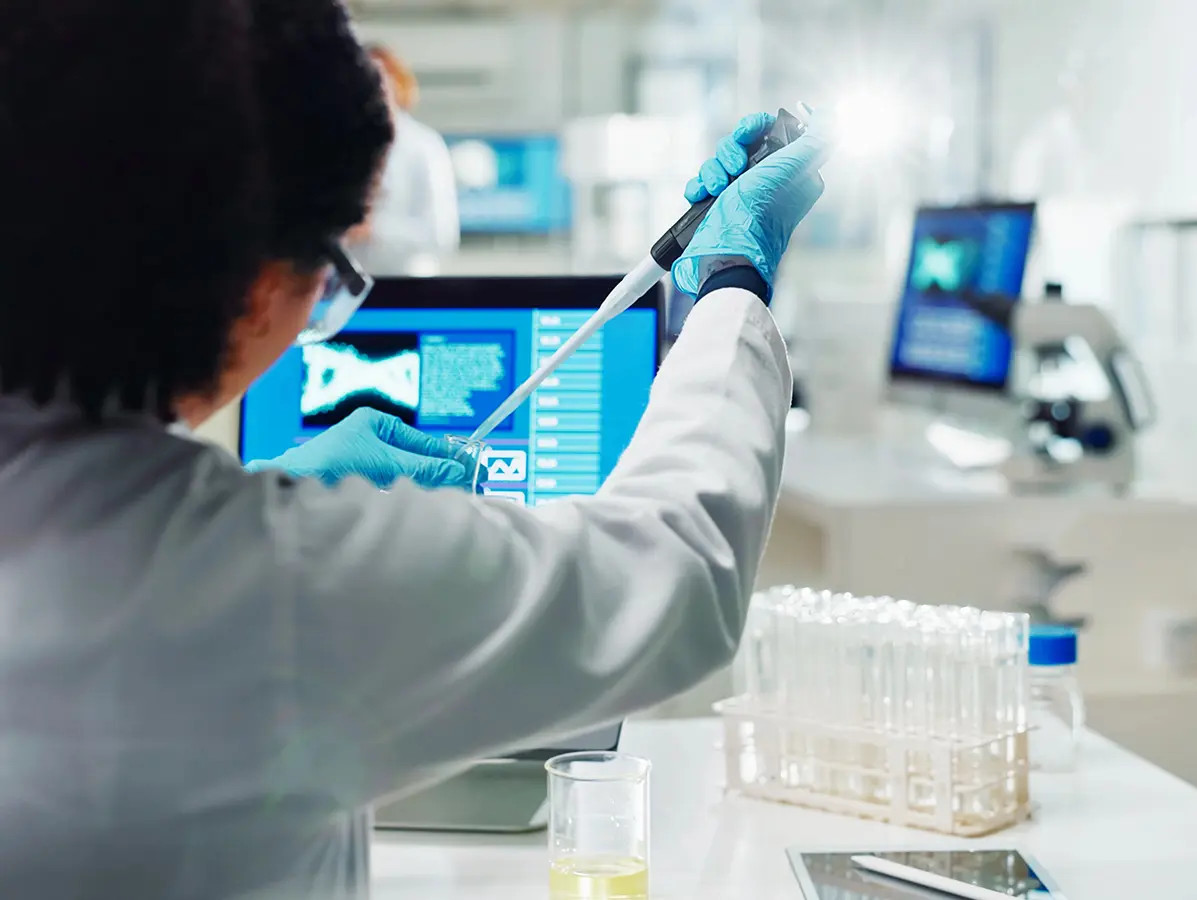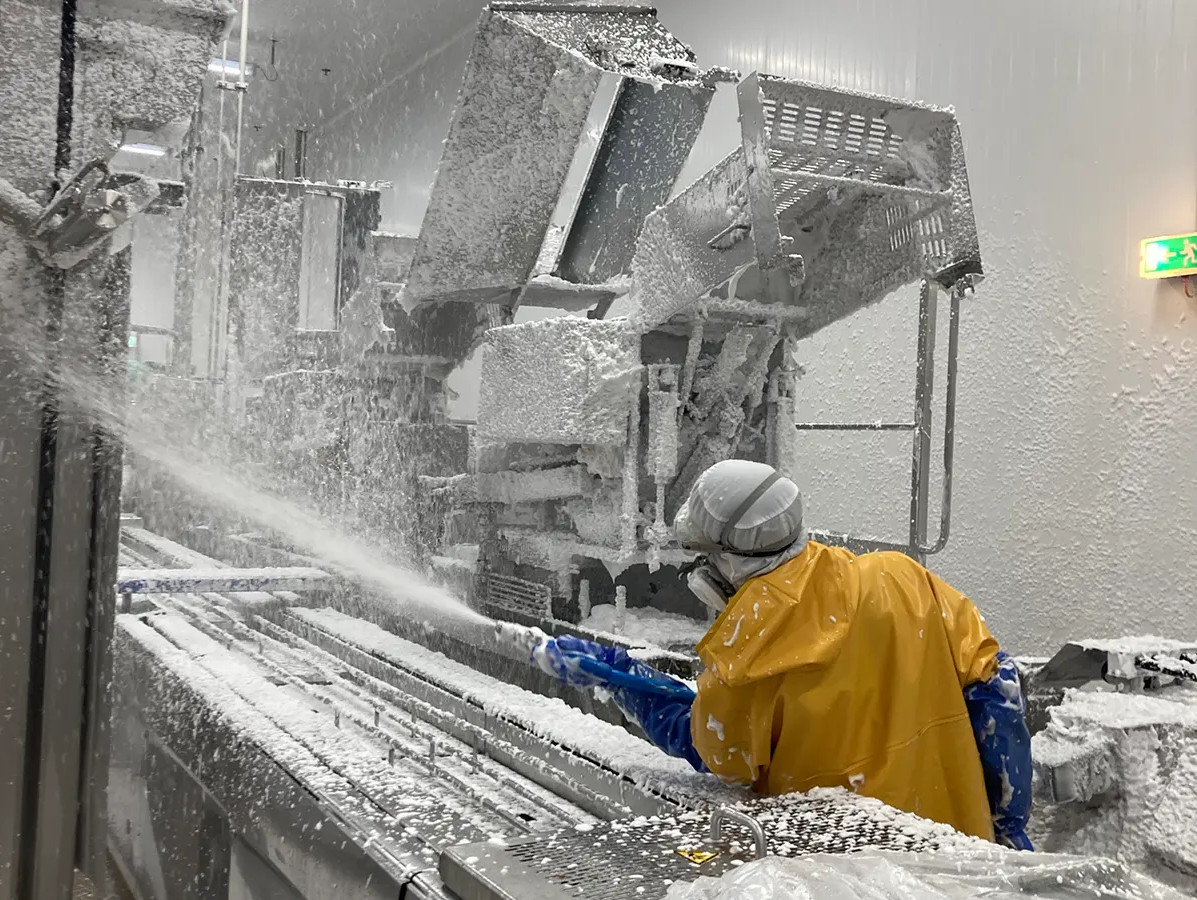
In close collaboration with Realco, based in Louvain-la-Neuve (Belgium), Eco2Clean has developed an innovative range of enzymatic cleaners called Enzyfoam COLD. These cleaners feature a unique, patented combination of various enzymes capable of effectively breaking down all contaminants at lower water temperatures, ensuring a completely clean surface.
"With 10 m³ of daily water use, you can easily save €15,000 annually"
Energy used to heat cleaning water is a significant cost factor in the food industry. The required water temperature for regular cleaning depends on the melting point or range of fats present in contamination after production. According to Gert Visscher, director of Eco2Clean, when using conventional cleaning agents, the water temperature should be kept 5 degrees Celsius higher than the melting point of the fats. “This allows the fats to liquefy, making them easier for cleaning agents to emulsify in water,” he explains. “At lower temperatures, removing proteins and fats often remains a challenge. Many food companies clean at water temperatures ranging from 40 to 60 degrees Celsius. For pork processing, cleaning water temperatures are at least 40 to 45 degrees Celsius, for beef processing 45 to 50 degrees, and for chicken 50 to 55 degrees Celsius. In vegetable, fruit, and fish processing companies, cold water is often used for cleaning. However, the latter sector struggles to remove protein and fat residues with cold water, which provides an excellent growth source for microorganisms.”
“Our new generation of enzymes can now dissolve fats even at lower water temperatures,” Gert continues. “We conducted extensive and long-term testing in practice on different types of contamination found in fish processing plants with oily fish, meat production facilities, and slaughterhouses handling unclean beef slaughtering. During each testing phase, the water temperature was typically between 25 and 35 degrees Celsius. The test results revealed that visual, bacteriological, and ATP evaluations were at least equal to or even better than those achieved with conventional products and higher water temperatures. For a daily water usage of 10 m³, lowering the temperature by 10 to 15 degrees Celsius results in an annual energy cost saving of approximately €15,000, while maintaining or even improving cleaning quality.”

Conventional cleaning agents often require personal protective equipment. In contrast, enzymatic cleaners can be used safely without protective gear during the cleaning process. Gert explains: “We have thoroughly studied the potential effects of enzyme inhalation during cleaning. It has been determined that airborne concentrations have no impact on health. To ensure no enzyme residues remain after cleaning, thorough rinsing with water—just as with conventional products—is required. Tests confirm that enzyme-based cleaning agents rinse off easily, leaving no residues.”
“We’ve also added a sustainable disinfection step,” says Gert. “After enzymatic cleaning, we recommend disinfecting all contact surfaces. This ensures that any remaining enzyme residues become inactive, delivering a perfect bacteriological result. The Laquick disinfectant we’ve developed contains no alcohol or quats but is based on a unique combination of lactic acid and hydrogen peroxide. It is highly effective and 100% ecological. After use, it breaks down into water, oxygen, and carbon dioxide. This product has a legal approval (15079 N) allowing it to be left on equipment overnight or over the weekend without rinsing. This also saves water and cleaning time.”
Using these unique enzymatic cleaners offers numerous advantages. “In addition to significant energy savings thanks to the lower water temperatures, they are safe for both people and machinery,” Gert notes. “Furthermore, the wastewater is less polluted because enzymes continue breaking down proteins and fats in the sewer system,” he adds. “This reduces the need for wastewater treatment capacity. When using the Laquick disinfectant after cleaning, no quat residues are left on equipment or in wastewater. By combining Enzyfoam COLD with Laquick, companies can save costs and reduce their environmental impact without compromising the quality of their cleaning processes.”
Source: Vakblad Voedingsindustrie 2024